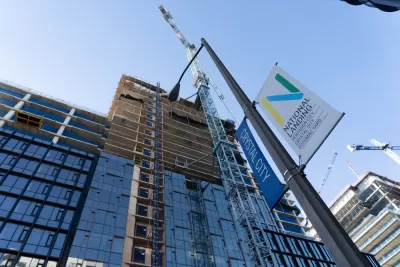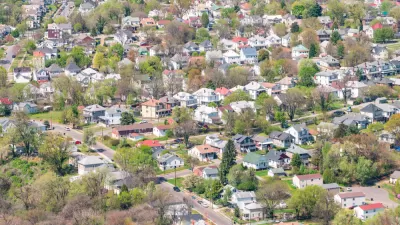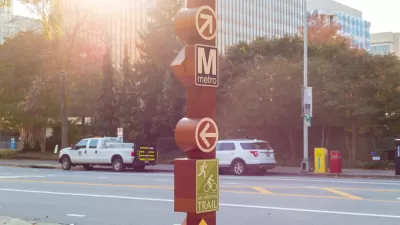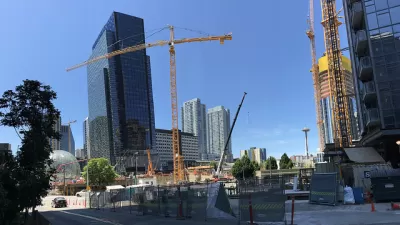Of the thousands of units Amazon has secured as part of its pledge to create affordable housing near its new headquarters, just over 200 are reserved for the lowest-income renters.

“Amazon sought to tamp down fears about displacing residents around its new Northern Virginia headquarters with a pledge last year to create and preserve thousands of affordable housing units in the D.C. area’s notoriously tight market.” But as Teo Armus reports, “For now, though, Amazon’s efforts will likely do little to move the needle for the region’s lowest-income residents, many of whom are already stretching their paychecks to make rent every month.”
Armus writes that “Of more than 4,100 units secured so far, just 215 will be set aside for residents who make 50 percent or less of the area median income.” Housing advocates worry that rising costs will push workers farther out from job centers, creating additional traffic and emissions as they are forced to commute longer distances.
In an interview, Catherine Buell, director of Amazon’s Housing Equity Fund, said the problem is too large for “even an Amazon” to solve on its own. “Amazon doesn’t own the affordable housing challenges, and governments are primarily responsible for managing the housing issues in their community. We’re here to be a partner.”
The article goes on to describe the difficult situations facing many workers in the region and similar efforts by other tech companies to create more affordable housing for their employees. “Some saw those efforts as a tacit recognition from these tech titans that they also needed to stabilize housing prices to attract their desired workforce. Homes in many parts of Silicon Valley have become prohibitively expensive even for well-paid software engineers, and Northern Virginia is not far behind.”
FULL STORY: Amazon’s $2B housing push has mostly left out D.C. area’s poorest

Planetizen Federal Action Tracker
A weekly monitor of how Trump’s orders and actions are impacting planners and planning in America.

DARTSpace Platform Streamlines Dallas TOD Application Process
The Dallas transit agency hopes a shorter permitting timeline will boost transit-oriented development around rail stations.

Congressman Proposes Bill to Rename DC Metro “Trump Train”
The Make Autorail Great Again Act would withhold federal funding to the system until the Washington Metropolitan Area Transit Authority (WMATA), rebrands as the Washington Metropolitan Authority for Greater Access (WMAGA).

Supreme Court Ruling in Pipeline Case Guts Federal Environmental Law
The decision limits the scope of a federal law that mandates extensive environmental impact reviews of energy, infrastructure, and transportation projects.

Texas State Bills to Defund Dallas Transit Die
DART would have seen a 30% service cut, $230M annual losses had the bills survived.

Bikeshare for the Win: Team Pedals to London Cricket Match, Beats Rivals Stuck in Traffic
While their opponents sat in gridlock, England's national cricket team hopped Lime bikes, riding to a 3-0 victory.
Urban Design for Planners 1: Software Tools
This six-course series explores essential urban design concepts using open source software and equips planners with the tools they need to participate fully in the urban design process.
Planning for Universal Design
Learn the tools for implementing Universal Design in planning regulations.
Roanoke Valley-Alleghany Regional Commission
City of Mt Shasta
City of Camden Redevelopment Agency
City of Astoria
Transportation Research & Education Center (TREC) at Portland State University
US High Speed Rail Association
City of Camden Redevelopment Agency
Municipality of Princeton (NJ)





























